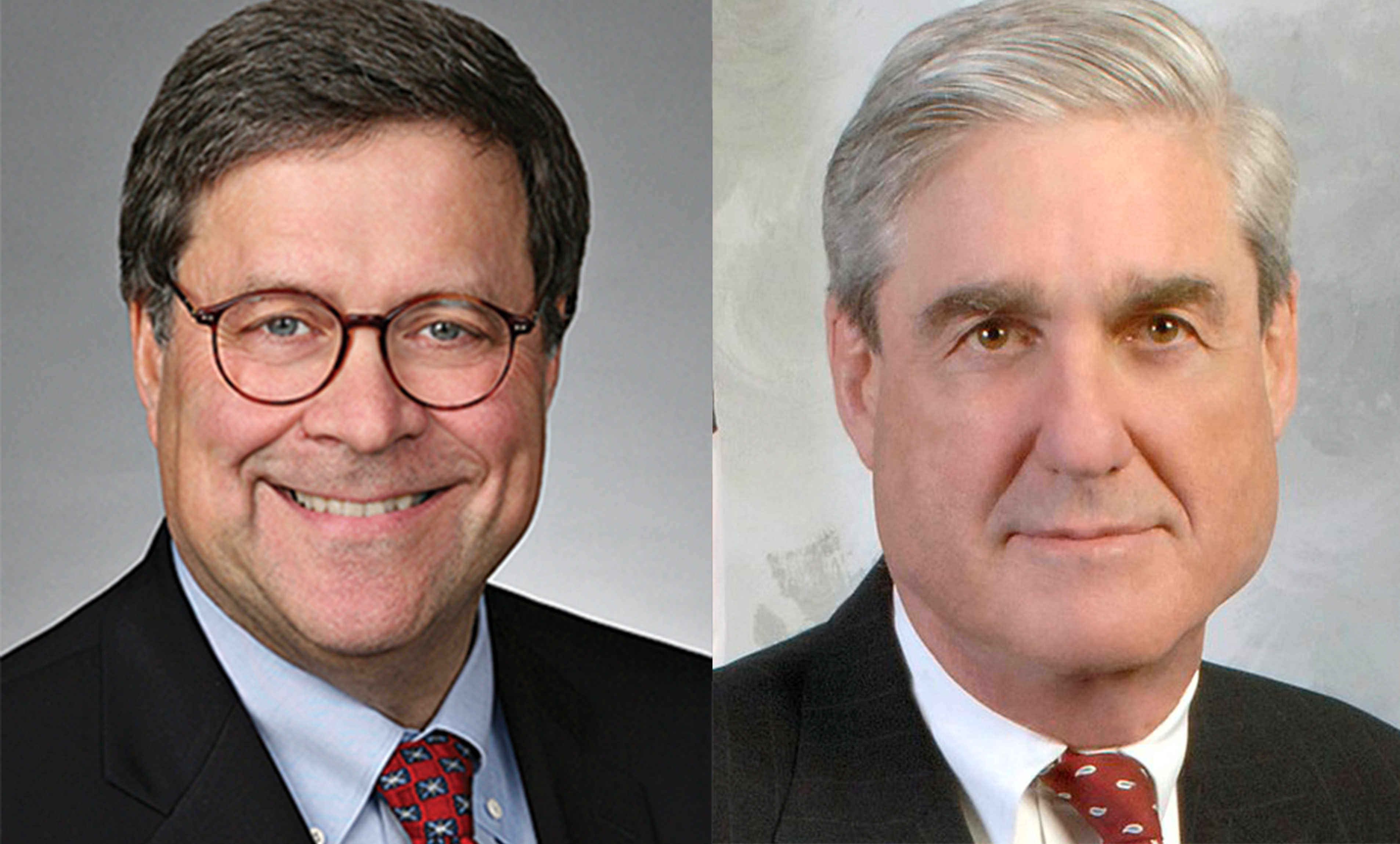Suit seeks release of Mueller report while Democrats still investigate; obstruction conclusion questioned

Attorney General William Barr and special counsel Robert Mueller.
Democrats said they would continue to investigate President Donald Trump after Attorney General William Barr said special counsel Robert Mueller had not found any collusion with Russia by Trump or his campaign.
Barr released his summary of Mueller’s principal conclusions Sunday, the New York Times reports.
The first suit seeking release of the confidential report—filed by the Electronic Privacy Information Center—was filed under the Freedom of Information Act on Friday about an hour after Mueller gave his report to Barr, the National Law Journal reports.
Top Democrats, meanwhile, called for release of the report, according to the Washington Post and the New York Times. “The American people have a right to know,” said House Speaker Nancy Pelosi of California and Sen. Chuck Schumer of New York in a joint statement.
Democratic Rep. Jerrold Nadler of New York, who chairs the House Judiciary Committee, said his committee would move forward with its obstruction investigation, and he would call Barr to testify. He also vowed to seek full access to the report.
Rep. Adam Schiff of California chairs the House Intelligence Committee, which has been investigating election interference. Schiff said Sunday he trusted Mueller’s prosecutorial judgment that there was no collusion, Politico reports. But he said the full report should be released because of “Russian offers to help Trump’s campaign, their acceptance, and a litany of concealed interactions with Russia.”
Nadler focused on part of Barr’s report concerning obstruction of justice by Trump and said Barr had prejudged the matter.
Mueller had stated that, “while this report does not conclude that the president committed a crime, it also does not exonerate him,” according to Barr’s summary.
But Barr said Mueller “did not draw a conclusion—one way or the other—as to whether the examined conduct constituted obstruction.” Instead, Barr said, Mueller set out evidence on both sides of the issue, which “leaves it to the attorney general to determine whether the conduct described in the report constitutes a crime.”
Barr said he and Deputy Attorney General Rod Rosenstein concluded that the evidence was insufficient to establish obstruction, and that conclusion “is not based on the constitutional considerations that surround the indictment and criminal prosecution of a sitting president.”
In making the determination, he and Rosenstein noted that the evidence didn’t establish that Trump was involved in the underlying crime of Russian election interference. The absence of such evidence “bears upon the president’s intent with respect to obstruction,” Barr said.
“In cataloguing the president’s actions, many of which took place in public view, the report identifies no actions that, in our judgment, constitute obstructive conduct, had a nexus to a pending or contemplated proceeding, and were done with corrupt intent.”
Nadler noted that Barr had previously written an unsolicited memo to the Justice Department in June 2018 expressing concern that Mueller appeared to be “proposing an unprecedented expansion of obstruction laws.”
Barr had written last June that obstruction laws don’t “criminalize just any act that can influence a ‘proceeding.’ ” Rather, they generally target actions that compromise the integrity of judges and juries or impair the integrity or availability of evidence, he wrote.
Barr also had written in June that Mueller was apparently investigating Trump for telling FBI Director James Comey that he hoped he could let go of the investigation of Michael Flynn and for later firing Comey. But the president has the authority under the Constitution to remove an official, to use his prosecutorial discretion to give direction on a case, or to use his pardon power, Barr wrote.
Nadler said Sunday that Barr “auditioned for his job by writing a 19-page memorandum giving a very extreme view of obstruction of justice in presidential power and saying basically no president can commit obstruction of justice.”
Neal Katyal, a professor at Georgetown Law, drafted the special counsel regulations under which Mueller was appointed. In a New York Times op-ed, he said Barr’s summary of the Mueller report “raises far more questions than it answers, both on the facts and the law.”
Katyal says Barr can’t make conclusions about whether Trump acted with corrupt intent without anyone interviewing Trump.
Katyal also refers to Barr’s June 2018 memo and says it “should be understood for what it is, a badly argued attempt to put presidents above the law. If he used that legal fiction to let President Trump off the hook, Congress would have to begin an impeachment investigation to vindicate the rule of law.”
Republicans—and Trump—had a different view. “No Collusion. No Obstruction, Complete and Total EXONERATION,” Trump tweeted. “KEEP AMERICA GREAT!”
Related article:
ABAJournal.com: “Mueller’s report is in; what happens now?”



